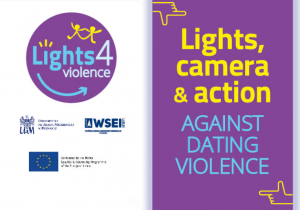Pérez-Martínez, V., Sanz-Barbero, B., Ferrer-Cascales, R., Bowes, N., Ayala, A., Sánchez-Sansegundo, M., Albaladejo-Blázquez, N., Rosati, N., Neves, S., Pereira Vieira, C., Jankowiak, B., Waszyńska, K., & Vives‐Cases, C. (2020). The Role of Social Support in Machismo and Acceptance of Violence Among Adolescents in Europe. Lights4Violence Baseline Results. Journal of Adolescent Health. DOI: 10.1016/j.jadohealth.2020.09.007
Acceptance of violence is associated with its normalization as a natural part of everyday life, and manifests itself in beliefs that justify aggression, assign blame to victims, and downplay the impact and severity of violence. Machismo, on the other hand, is a sociocultural construct defined as sexist attitudes that justify the superiority and dominance of men over women. Attitudes composed of beliefs that men should be aggressive, independent and dominant while women should be weak, dependent and submissive and that violence is normal, put women and girls at risk of experiencing violence in intimate relationships. The aim of the study was to analyze the potential relationship between social support, experiences of violence in the adolescent life cycle and the likelihood of developing sexist and accepting attitudes toward violence. The study was conducted within the European project against Dating Violence "Lights, Camera and Action against Dating Violence" (Lights4Violence), funded by the European Commission Directorate-General for Justice and Consumers Rights, Equality and Citizen Violence Against Women Program. The results indicate that both machismo and acceptance of violence are common in the attitudes of adolescents from various European countries. Experiences of physical as well as sexual violence in childhood and dating violence, as well as bullying and cyberbullying in adolescence, increase the likelihood of forming attitudes that accept violence. It turned out that acceptance of violence and sexist attitudes were more common among those adolescents who experienced less social support from parents and teachers. The results indicate the importance of preventing all forms of violence against children and supporting the positive development of adolescents by significant others, which can contribute to the formation of nonviolent attitudes and thus play a role in building healthy adolescent social relationships.
